consciousness
Pay Attention To Your Psychic Intuitions
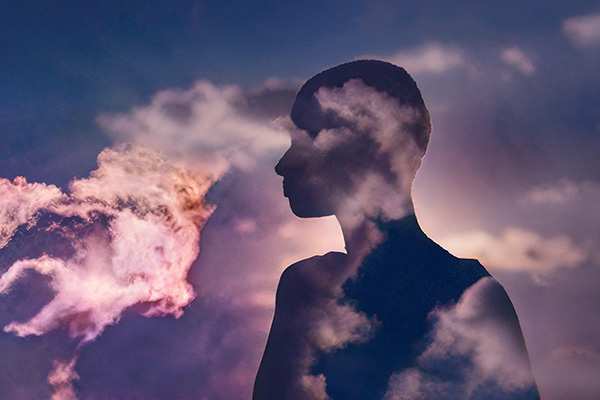 My psychic abilities were evident from a young age. For example, I remember ‘knowing’ beforehand that I was going to have a new teacher’s at school when I was just five years old, while nobody had said a word about it to me.
My psychic abilities were evident from a young age. For example, I remember ‘knowing’ beforehand that I was going to have a new teacher’s at school when I was just five years old, while nobody had said a word about it to me.
I often knew days in advance when certain children’s TV program would be broadcast before I could read schedules in newspapers or magazines. I also knew in advance when next I was next going to see my favorite cousin again, even though he lived on the other side of the country and his family had no immediate plans of visiting.
When I was a teenager, I remember causing a commotion with a local hairstylist. I had told her that she would meet a Scottish guy who was a widower and that he would ask her out on a date. A few weeks later, much to her amazement, she did.
We all have some level of psychic awareness. Our intuition is a communication channel through which God, Source, Spirit, the Divine guides us in the right direction along our earthly journey.
Have you ever ignored a hunch or a gut feeling, but that little voice inside just wouldn’t go away? I bet you regretted it later. It is never a good idea to disregardstrong gut feelings and nagging intuitions. It is usually spirit alerting you to something that requires your attention or immediate action. I learned this in a profound way some 42 years ago, when I prevented a child in a buggy from being blown in front of an oncoming vehicle.
About 12 years ago, my brother sadly suffered a stroke, which he thankfully recovered from. The evening it happened, I remember sensing that he may be in some kind of distress or danger. I did not know for sure exactly what it was, but I felt he was not doing well.
Remembering The Lost Wisdom Of Lemuria
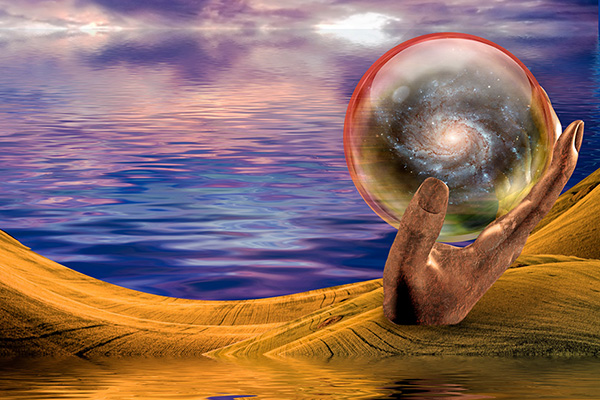 In 2013, the scientific journal Nature pusblished a report that a long-lost continent had been discovered hidden under the Indian Ocean island of Mauritius. This was furher confirmed by another study pusblished in 2017. What makes this unprecedented announcement especially interesting for the modern estoteric community is that it confirms the long-held belief that a lost continent called Lemuria, or the Land of Mu, did in fact exist, exactly as some scholars had speculated as far back as the mid-1800s.
In 2013, the scientific journal Nature pusblished a report that a long-lost continent had been discovered hidden under the Indian Ocean island of Mauritius. This was furher confirmed by another study pusblished in 2017. What makes this unprecedented announcement especially interesting for the modern estoteric community is that it confirms the long-held belief that a lost continent called Lemuria, or the Land of Mu, did in fact exist, exactly as some scholars had speculated as far back as the mid-1800s.
Although not yet confirmed by modern science, it is also believed that this lost continent was once inhabited by an extinct race of prehistoric humans known as Lemurians. It is believed the Lemurians coexisted with the dinosaurs. They are even said to have had four arms and very tall, large, adrogynous bodies.
The legend of Lemuria and its inhabitants gained increased interest in the esoteric community when Helena Blavatsky, the Russian mystic and co-founder of the Theosophical Society, published her famous book The Secret Doctine in 1888. In the second part of the book, she describes how humanity originated and evolved from seven “root races” dating back millions of years. According to Madame Blavatsky the third root race was the first to be truly human and they existed on the lost continent of Lemuria, while the fourth root race is said to have developed in Atlantis.
“Occultism rejects the idea that Nature developed man from the ape, or even from an ancestor common to both, but traces, on the contrary, some of the most anthropoid species to the Third Race man,” writes Blavatsky.
The Intuitive Benefits Of Meditation
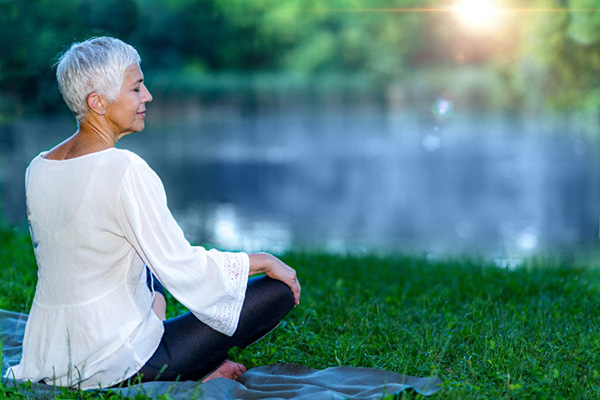 Meditation led me to a major spiritual awakening and increased psychic awareness. Meditation allows us to become more spiritually aware, enlightened, and more open to the spirit realm.
Meditation led me to a major spiritual awakening and increased psychic awareness. Meditation allows us to become more spiritually aware, enlightened, and more open to the spirit realm.
When I first started meditating, I would often become distracted or even fall asleep. It used to frustrate me, because I feared I might ever be able to achieve a proper state of meditation. But I persevered and kept trying for a few minutes every night. Eventually, I found that I could get into a meditative state more easily, without losing focus or drifting off. So, be patient and give yourself time in the beginning to get used this different state of consciousness.
Once you become more skilled and meditate frequently, you will soon notice that you are becoming much more intuitive. You will feel more tuned in to other people and your surroundings, and may begin to pick up on more energetic information.
A powerful way to increase your psychic awareness using a meditative state is focus on any point of light or object and then ‘zone out’ as if you are daydreaming. I like to practice by focusing on a silver picture frame in my bedroom. A crystal or candle flame are also good options.
Once you have become good at entering the meditative state by focusing on something, try to do it when you are out and about. You may begin to notice that people and objects look somewhat ‘hazy,’ as if they have a glare around them. This is actually the aura or energy field of the object or person.
With frequent mindful meditation your metaphysical awareness will become more heightened over time. In a state of daily meditative awareness, it feels as if God, Source, Spirit, the Universe begins to speak to you in secret.
Are You Consciously Guided By Spirit?
 Our guides are constantly directing us toward our highest good and the fulfillment of our soul purpose, whether we are aware of it or not. Their guidance is all the more effective and efficient when we are consciously aware and open to it on a daily basis.
Our guides are constantly directing us toward our highest good and the fulfillment of our soul purpose, whether we are aware of it or not. Their guidance is all the more effective and efficient when we are consciously aware and open to it on a daily basis.
We are all here to fulfill our soul’s mission in this lifetime. We have agreed to come to Earth for a specific purpose or calling. I also believe that if that mission is not accomplished, we will keep coming back to this plane of existence until it is.
Our spirit guides are with us every step of the way to assist and support us in achieving these life goals. These non-physical beings are an essential part of our spiritual journey. Just as we have teachers, mentors and protectors in the physical world, our guides provide support and encouragement in the metaphysical realms.
Everyone has one or more spirit guides assigned to them. These guides are aware of our life’s purpose, challenges and lessons, and they help us navigate these aspects of life. Every day our guides nudge us in the right direction with signs, synchronicities, gut feelings, hunches, ideas, dreams, visions, inspirations, insights and warnings as we navigate life’s challenges and pursue our goals. They are also sources of unconditional love and understanding.
There are several types of spirit guides, all of which have different roles and functions. Some are the spirits of deceased loved ones and ancestors, or even nature or animal spirits. Others are guardian angels, ascended masters, or other spiritual beings or entities who have lived many lifetimes and reached a high level of spiritual evolution and enlightenment.
Spirit Guide Teachings & Traditions
The concept of spirit guides or similar beings who assist us on our spiritual journey is found in various spiritual and religious traditions around the world. While the specific names, forms, and functions of these beings can vary widely between cultures and belief systems, the underlying idea of benevolent spiritual beings providing guidance, protection, and support to individuals is a common theme. The following are some of the promiment teachings and traditions:
Shamanism: Shamanic traditions from various cultures, including Native American, Siberian, African, and South American traditions, often involve working with spirit guides. Shamans communicate with spirit helpers, often in the form of animals or ancestral spirits, to receive guidance, healing, and insight.
Indigenous and folk traditions: Many indigenous and folk traditions around the world believe in spirit helpers or guardian spirits to assist individuals in their daily lives and spiritual endeavors. These traditions often involve rituals, ceremonies, and prayers to invoke the help of benevolent spirits.
Neo-paganism and witchcraft: Modern pagan and witchcraft traditions, such as Wicca and Druidry, may include the concept of spirit guides, familiars (spiritual animal helpers), or deity guides. Practitioners may establish relationships with these beings through ritual, meditation, and spellwork.
Spiritualism: Spiritualism, a religious movement that emerged in the 19th century, emphasizes communication with spirits of the deceased, including spirit guides. Spiritualists believe in the existence of spirit realms and advocate mediumship to connect with spirits for guidance and messages.
Esoteric traditions: Esoteric traditions, such as Hermeticism, Kabbalah, and Rosicrucianism, often include the concept of spiritual beings or guides. These traditions explore hidden or mystical aspects of spirituality and may include practices for communicating with spiritual beings for enlightenment and spiritual growth.
Occult practices: Occultism encompasses a range of mystical and magical practices that often involve contact with spiritual entities. Occultists may work with ceremonial magic, divination, or astral projection to connect with guides or entities for spiritual insight and empowerment.
New Age spirituality: New Age beliefs encompass a wide range of spiritual practices and ideas, many of which include the concept of spirit guides. In New Age spirituality, spirit guides are seen as wise and loving beings who assist individuals on their spiritual journeys through intuition, dreams, and synchronicities.
Eastern spiritual traditions: Certain Eastern spiritual traditions, such as Buddhism and Hinduism, include a belief in celestial beings, or bodhisattvas, who serve as guides and protectors. Followers may invoke these beings for help and blessings on their spiritual path.
Judaism: Angels (malakhim) are considered divine messengers and servants of God in Judaism. They are believed to carry out God’s will, deliver messages, protect individuals, and assist in spiritual matters. Although they are not personal guides in the same way as in some other traditions, angels play a crucial role in Jewish theology and mythology.’
Islam: In Islam, angels (malāʾikah) are considered beings created from light who serve as messengers of God and guardians of creation. They perform various tasks at God’s command, including delivering revelations to prophets and recording the deeds of human beings. Angels are believed to play a role in guiding and protecting believers.
Christianity: In Christianity, angels are spiritual beings created by God to serve as intermediaries between God and human beings. They are often portrayed as messengers, protectors, and guides. Some Christians believe that each person is assigned a guardian angel for protection and guidance throughout life. Christians also believe that the Holy Spirit is God’s presence and power active in the world, guiding believers, inspiring spiritual growth, and providing comfort and wisdom. The Holy Spirit is seen as a personal divine guide who dwells within believers, helping them to understand God’s will and empowering them to live the Christian life.
Are You Consciously Guided By Spirit?
Unfortunately, many people are unaware of the daily guidance of spirits and do not recognize the messages they send. Often the messages our guides send are lost on us because our lives are too busy and our minds too busy. To make matters worse, we also tend to ignore signs, synchronicities, and intuitions. This often leads to poor choices and decisions, and sometimes to disastrous, even life-threatening situations!
Spirit can only suggest, encourage and recommend. Our guides cannot force us to do anything against our free will. Nor can Spirit interfere in our lives and direct our choices without our participation and consent. In other words, our guides can only help us if we are willing to help ourselves. For the best results, we must ask for guidance and support, and then be open to receiving it.
When we are consciously and willingly guided by Spirit, we become more empowered and begin to believe in ourselves and our ability to make the best choices. Once we begin to believe, our highest good begins to unfold and we begin to manifest what we need to fulfill our mission and live our best life.
When we are open to Spirit’s guidance in making the right choices and decisions, more things begin to fall into place easily in our daily lives. Spirit can provide the pieces of the puzzle that we need. All we have to do is ask and then pay attention when the answers come.
Connecting With Your Spirit Guides
It is important that we strengthen our connection to our guides through spiritual practice and increased metaphysical awareness. We will be better for it in the end, in this life and the next.
Cultivating stronger and clearer communication with your guides involves developing your spiritual awareness, openness, and sensitivity to subtle energies and messages. Here are some spiritual practices and techniques that can help strengthen your connection with your guides:
Automatic Writing: Sit quietly with pen and paper and allow yourself to write freely without consciously directing your thoughts. You may receive messages or insights from your guides through this practice.
Candle or Crystal Work: Light a candle or hold a crystal with the intention of connecting with your guides. Focus your attention on the flame or crystal and invite your guides to communicate with you.
Divination: Use divination tools such as tarot cards, oracle cards, runes, or pendulums to communicate with your spirit guides. Develop a personal practice of divination that feels resonant and meaningful to you.
Dreamwork: Pay attention to your dreams. Before going to sleep, set the intention to connect with your guides. Keep a dream journal by your bed to record any guidance you receive during dream states.
Intention-Setting: Clearly state your intention to connect with your guides. Affirm your willingness to receive their guidance and support. Setting clear intentions helps to align your energy and focus your attention on connecting with the spiritual realm.
Intuitive Development: Engage in exercises that develop your intuition, such as guided intuition meditations or workshops. Trusting your intuitive senses can strengthen your ability to perceive your guides.
Journaling: Keep a journal to record your spiritual experiences, dreams, and any intuitive insights you receive. Writing down your thoughts and experiences can help you identify patterns and messages from your spirit guides over time.
Meditation: Regular meditation practice is key to quieting the mind, enhancing intuition, and deepening spiritual awareness. Set aside time each day to sit quietly, focus on your breath, and create a calm inner space where you can be receptive to the guidance of your guides.
Mindfulness: Practicing mindfulness throughout the day helps you stay present and aware, making it easier to notice subtle signs, synchronicities, and intuitive feelings that may be messages from your guides.Prayer: Set aside time each day to pray or speak directly to your guides. You can use traditional prayers or just speak from your heart. Ask for guidance, protection, and clarity as you connect with them. Prayer is a beautiful way to express your intentions and gratitude to your guides, fostering a deeper connection and sense of awe in your spiritual exploration.
Prayer: Set aside time each day to pray or speak directly to your guides. You can use traditional prayers or just speak from your heart. Ask for guidance, protection, and clarity as you connect with them. Prayer is a beautiful way to express your intentions and gratitude to your guides, fostering a deeper connection and sense of awe in your spiritual exploration.
Self-reflection: Spend time in nature or in quiet spaces where you can reflect and connect with your inner self. Being in a natural environment can increase your receptivity to spiritual energies and messages.
Signs & Synchronicities: Make it a habit to ask your guides for signs or symbols that they are present and guiding you. Be open to receiving these signs in unexpected ways, such as song lyrics, animal encounters, or meaningful coincidences.
Visualization: Listen to guided visualization meditations to invite your guides into your consciousness, or do your own visualization exercise in which you imagine a sacred space where you can meet and communicate with them.
Before connecting with your guides, invoke spiritual protection and set clear boundaries. State your intention to communicate only with benevolent and loving energies that have your best interests at heart. It is also important to express gratitude for your guides and their presence in your life. Thank them for their support and guidance, even if it’s not always obvious. I like to start with a prayer:
My beloved Spirit Guides, I open my heart and mind to your presence. Please guide me with your wisdom and love. Help me to recognize your signs and messages. I am grateful for your support on my spiritual journey. Thank you for being with me always.
Remember that developing a strong and clear connection with your guides is a personal journey that unfolds over time. Be open to experimenting with different practices and approaches to discover what resonates most deeply with you and strengthens your spiritual connection. Trust your intuition and inner guidance as you explore the realm of personal spiritual guidance and communication.
Your guides are always with you and working for your highest good, even if you don’t immediately sense their presence. Cultivate patience and openness to receiving guidance in divine timing. Consider working with a trusted psychic advisor, spiritual teacher, or intuitive mentor who can offer guidance and techniques for strengthening your connection with your guides.
Spirit Guides In Psychic Reading
One of the best ways to receive messages and guidance from your spirit guides is to request a reading with a psychic, medium, or trance channeler. Many of my clients seek guidance from spirit guides for personal growth, healing from trauma, or making important life decisions.
Spirit guides play a significant role in authentic psychic and medium readings by providing valuable assistance and information for the reader to pass on to the recipient of the reading. Spirit guides are involved in readings in the following important ways
Facilitating communication: Spirit guides act as mediators or facilitators during psychic and medium readings. They help connect the psychic or medium to the spirit realm and the energies of deceased loved ones or other spiritual entities.
Provide information: Spirit guides relay information, insights, or messages through the psychic or medium during a reading. This information may come in the form of thoughts, feelings, images, or symbols that the reader interprets and communicates to the client.
Interpretive assistance: Spirit guides also assist the psychic or medium in interpreting the information received from the spiritual realm. They may provide additional context, clarification, or guidance to ensure that the messages are accurately conveyed and understood.
Protection and guidance: Spirit guides play an important protective role during readings, ensuring that only benevolent and helpful energies are allowed to communicate. They also guide the psychic or medium in maintaining a safe and respectful connection with the spirit realm, and help to create a sacred and harmonious space in which to conduct readings, infusing the environment with positive energies and spiritual protection.
Professional guidance: Spirit guides serve not only the recipients of readings, but also the readers. They provide ongoing guidance and support to psychics and mediums in their spiritual development and professional practice. My guides continually assist me in honing my reading skills, expanding my psychic awareness, and deepening my connection to higher consciousness.
Setting boundaries and ethics: Spirit guides help establish ethical boundaries and guidelines for conducting readings. They help ensure that the reader approaches his or her work with integrity, compassion, and respect for both the living and the deceased.
Overall, spirit guides play an integral role in psychic and mediumistic work, serving not only as sources of information and guidance, but also as supportive allies and teachers for readers, channelers, healers, and other spiritual practitioners. Their presence and assistance enhance the quality and authenticity of readings and foster meaningful connections between the spirit realm and people seeking divine guidance or communication with loved ones beyond the physical world. Working in partnership with spirit guides allows psychics and mediums to offer profound insights, healing messages, and spiritual guidance to those they serve.
Love Is The Energy That Connects Souls
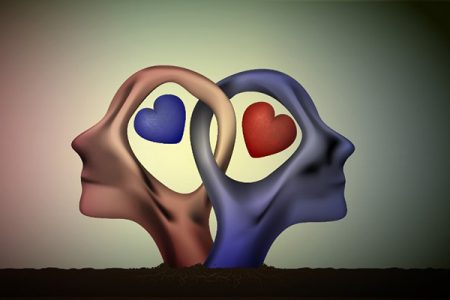 There is one great metaphysical force or energy that connects us all. This greatest force is love. Love is the only energy that can truly overcome all and heal all. It connects us to each other – even those that we cannot be with.
There is one great metaphysical force or energy that connects us all. This greatest force is love. Love is the only energy that can truly overcome all and heal all. It connects us to each other – even those that we cannot be with.
Have you ever experienced the phone ringing and you just knew who it was on the other end before you even picked up? Then, once you had said hello, you think to yourself, “How did I know it was her calling?” You even get goose bumps once your intuition is confirmed. It’s a neat feeling, isn’t it?
Well, it’s also like that when out of the blue we think of someone for no reason. It’s usually because that person is also thinking of us. We are all connected.
We have naturally have what it takes to make these connections happen. One of the ingredients that it takes to be ‘dialed in’ like that is balance. We need to have balance in our lives. If we are disconnected and out of alignment in our lives we are not tuned in very well to these energetic connections we have with others. This is especially true when we indulge in some form of substance abuse, like smoking, alcohol or drugs. These things can really mess with the mind, body and soul.
You need to be healthy and you need to meditate or pray on a regular basis to help you stay on the vibrational frequency that you need to be to receive intuitive impressions, thoughts and feelings from those you love.
It is very difficult to be able to hear someone or feel someone, and love them so much and want to be with them so much, and not be able to. Know that if you are feeling these things from those you love you are very much connected. Remember, sometimes we have to wait to be with that person physically, because it’s all in divine timing – not our own timing.
The Evolution Of Your Metron
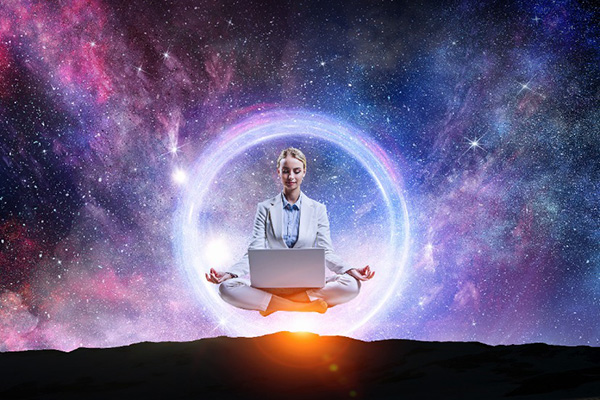 With the rapid expansion of digital communication technology we are increasingly coming into an evolutionary shift of consciousness as it relates to relationships between individuals in the human family.
With the rapid expansion of digital communication technology we are increasingly coming into an evolutionary shift of consciousness as it relates to relationships between individuals in the human family.
Let’s first look at social and spiritual structures in relationships. I would like to resurrect for the purpose the Greek word metron (μέτρον). Metron is a unit of measure that we can use to explain our sphere of influence, and also the spiritual gifts and styles that we use to influence this sphere.
Many of us have a limited metron, and consistently manifest together with the same grouping of souls on the planet. We each have a family structure that is related to soul agreements before incarnating on the planet. This is why we sometimes meet a person and have the feeling that we have known them our whole lives. What is happening is that our souls are united in the same metron.
We are all inter-connected with one another. Think of it this way: we have the Earth making up one bustling metron of consciousness, or a single metron with many parts. Then we have our solar system making up a greater metron; then the galaxy encompassing the metron units on an even greater scale; next the universe; then the multiverse; and who knows what else is out there compiling greater and greater complexity together.
Our spiritual or soul experience is very similar. We have a small group of people making up our metron, and then we have societal and social structures that increase this metron moving out to a greater and greater expansive experience, until we have the cosmic or universal consciousness.
